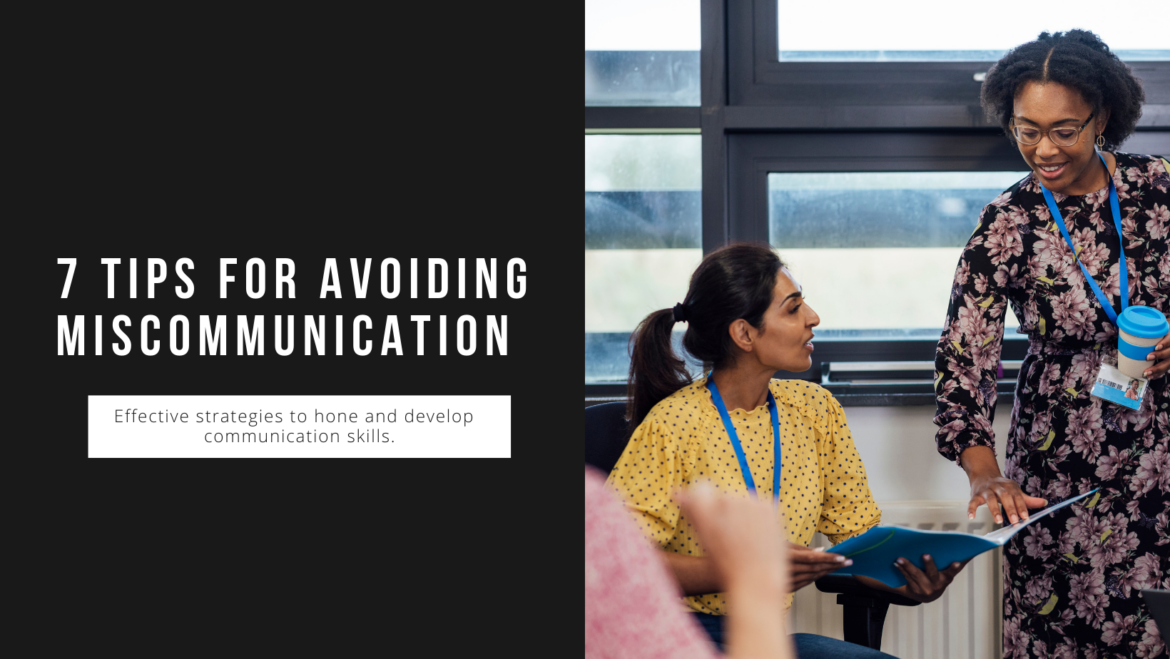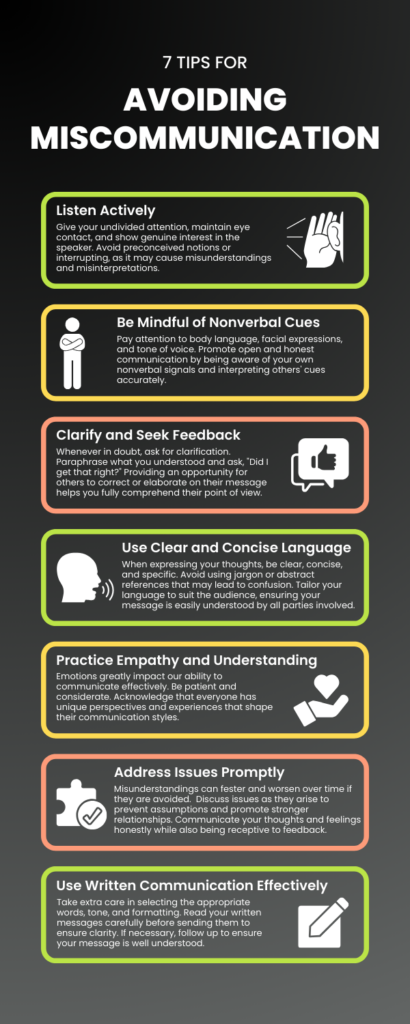Miscommunication is a common occurrence in our daily lives. Often, it leads to conflicts, errors, and misunderstandings. Whether at work or home, miscommunication can create unnecessary stress and tension. Fortunately, there are several practical tips we can employ to enhance our communication skills and minimize misunderstandings. Let’s explore effective strategies for navigating conversations and avoiding miscommunication.
1. Listen Actively
Communication is a two-way process, and active listening plays a crucial role in understanding others. Give your undivided attention, maintain eye contact, and show genuine interest in the speaker. Avoid preconceived notions or interrupting, as it may cause misunderstandings and misinterpretations. Taking the time to listen attentively helps build stronger connections and ensures accurate comprehension.
2. Be Mindful of Nonverbal Cues
Communication extends beyond words. Nonverbal cues play a vital role in conveying messages. Pay attention to body language, facial expressions, and tone of voice. These cues often reveal the true meaning behind someone’s words. Promote open and honest communication by being aware of your own nonverbal signals and interpreting others’ cues accurately.
3. Clarify and Seek Feedback
Assuming you understand someone’s intentions without seeking clarification can lead to miscommunication. Whenever in doubt, ask for clarification. Paraphrase what you understood and ask, “Did I get that right?” Providing an opportunity for others to correct or elaborate on their message helps you fully comprehend their point of view. This will help reduce the chances of misunderstanding.
4. Use Clear and Concise Language
Vagueness and ambiguity are sure grounds for miscommunication. When expressing your thoughts, be clear, concise, and specific. Avoid using jargon or abstract references that may lead to confusion. Tailor your language to suit the audience, ensuring your message is easily understood by all parties involved.
5. Practice Empathy and Understanding
Emotions greatly impact our ability to communicate effectively. Developing empathy allows you to understand others better and respond accordingly. Be patient and considerate. Acknowledge that everyone has unique perspectives and experiences that shape their communication styles. Cultivating an atmosphere of understanding fosters open dialogue and minimizes misinterpretations.
6. Address Issues Promptly
By avoiding difficult conversations, misunderstandings can fester and worsen over time. Addressing concerns promptly allows for immediate clarification and resolution. Communicate your thoughts and feelings honestly while also being receptive to feedback. Discussing issues as they arise prevents assumptions and ultimately promotes stronger relationships.
7. Use Written Communication Effectively
In today’s digital world, written communication, including emails and instant messaging, is increasingly common. To avoid miscommunication in written form, take extra care in selecting the appropriate words, tone, and formatting. Read your written messages carefully before sending them to ensure clarity. If necessary, follow up to ensure your message is well understood.
We can minimize misunderstandings and foster better connections by incorporating these tips into our daily interactions. Remember, effective communication is a skill that can be honed and developed with practice and intention.


